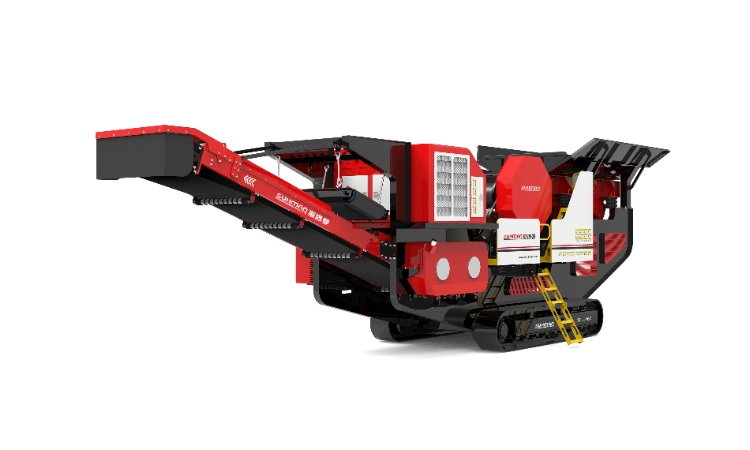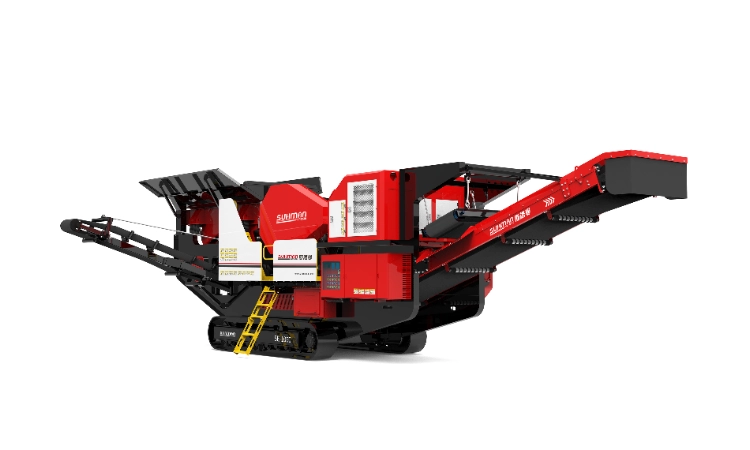Mobile crushers, also known as mobile crushing plants, are portable machines designed to process large materials—like rocks, ores, and construction waste—into smaller, reusable aggregates directly at the source. Whether at a quarry, construction site, or recycling facility, these versatile units eliminate the need for costly transportation, enhance operational efficiency, and reduce environmental impact. The global mobile crusher market, valued at USD 3.66 billion in 2022, is projected to grow at a compound annual growth rate (CAGR) of 4.9% from 2023 to 2030, fueled by urbanization, infrastructure projects, and advancements in crushing technology.
For a deeper look at leading models, check out China Mobile Crusher Manufacturers – Top Jaw & Cone Models.



What Are Mobile Crushers?
Mobile crushers are mounted on wheels or tracks, enabling them to move easily between job sites. They excel in industries such as mining, construction, and recycling by crushing materials on-site, saving time and resources compared to transporting materials to a stationary plant.
Key Features
- Portability: Quick relocation suits multi-site or temporary projects.
- Versatility: Processes a wide range of materials, from hard rock to debris.
- Integrated Systems: Often includes screening and conveying for all-in-one solutions.
- Cost Efficiency: Minimizes transportation and setup costs.
Types of Mobile Crushers
Mobile crushers come in various types, each tailored to specific crushing needs and material types. Here’s a breakdown of the main categories:
1. Jaw Crushers
Jaw crushers are perfect for primary crushing, tackling tough materials like granite, basalt, and concrete. They use a fixed and moving jaw to compress and break down material into smaller sizes, making them a staple in quarries and demolition sites.
- Key Advantage: High capacity for hard materials.
- Learn More: Mobile Jaw Crusher Plus with Powerful Crushing Ability.
2. Cone Crushers
Cone crushers handle secondary, tertiary, and quaternary crushing, producing finer, uniform aggregates. They’re ideal for construction and mining projects requiring precise particle sizes.
- Key Advantage: Consistent output for high-quality aggregates.
3. Impact Crushers
Impact crushers excel in secondary crushing of softer materials like limestone or recycled concrete. Using impact force, they deliver aggregates with excellent shape and size, perfect for sand production.
- Key Advantage: Superior grain shape.
- Learn More: Mobile Impact Crushers – Precision in Sand and Aggregate Production.
Applications of Mobile Crushers
Mobile crushers adapt to diverse industries, offering tailored solutions for material processing:
1. Mining
In mining, mobile crushers process ores and minerals on-site, cutting transportation costs and boosting efficiency in quarries.
2. Construction Waste Recycling
They transform debris like concrete and asphalt into reusable aggregates, promoting sustainability.
3. Aggregate Production
Mobile crushers produce sand, gravel, and crushed stone for infrastructure, ensuring a reliable supply of quality materials.
4. Infrastructure Projects
For roads, railways, and urban development, they process materials in remote or temporary locations with ease.
For innovative all-in-one solutions, explore Mobile Crushing and Screening Integrated Machine.
Benefits of Mobile Crushers
Mobile crushers stand out over stationary options due to their unique advantages:
1. Cost Efficiency
On-site crushing reduces transportation and equipment costs.
2. Flexibility and Mobility
Their portability suits projects across multiple or challenging sites.
3. Quick Setup
Ready to operate in hours, they minimize downtime.
4. Environmental Benefits
Reduced transport and recycling capabilities lower carbon footprints.
Discover why they’re a top choice at Why Choose Suhman’s Mobile Crushers – High-Performance Crushing & Screening Solutions.
How to Choose the Right Mobile Crusher
Selecting the ideal mobile crusher depends on several factors:
1. Material Type
- Hard Rocks: Jaw crushers for primary stages.
- Softer Materials: Impact crushers for secondary crushing.
- Fine Aggregates: Cone crushers for precision.
2. Output Requirements
- Coarse Aggregates: Jaw crushers.
- Fine Particles: Cone crushers.
- Shaped Aggregates: Impact crushers.
3. Mobility Needs
- Tracked Units: Best for rough terrain.
- Wheeled Units: Suited for flat, stable surfaces.
4. Capacity
- Small Projects: 100-200 t/h.
- Large Operations: Up to 700 t/h.
Market Trends and Innovations
The mobile crusher industry is evolving with cutting-edge advancements:
1. Advanced Engines
Fuel-efficient, eco-friendly designs reduce emissions.
2. Automation
Smart controls and remote operation enhance productivity.
3. Modular Designs
Customizable units adapt to diverse needs.
4. Dust and Noise Reduction
New technologies meet urban and environmental standards.
See innovation in action with Mobile Crushing and Screening Integrated Machine.
Mobile vs. Stationary Crushers: A Comparison
| Feature | Mobile Crushers | Stationary Crushers |
|---|---|---|
| Mobility | Highly portable | Fixed location |
| Setup Time | Hours | Weeks |
| Throughput | Up to 700 t/h | Up to 2000 t/h |
| Cost | Lower initial, higher operating | Higher initial, lower operating |
| Applications | Short-term, multi-site | Long-term, high-volume |
- Mobile Crushers: Ideal for flexibility and quick projects.
- Stationary Crushers: Best for large, fixed operations.
Mobile crushers offer a game-changing approach to material processing, combining efficiency, mobility, and sustainability. As demand grows withව, driven by infrastructure and innovation, they provide a competitive edge for modern projects. Explore Suhman’s cutting-edge solutions at Anhui Suhman Engineering Machinery Co., Ltd..



